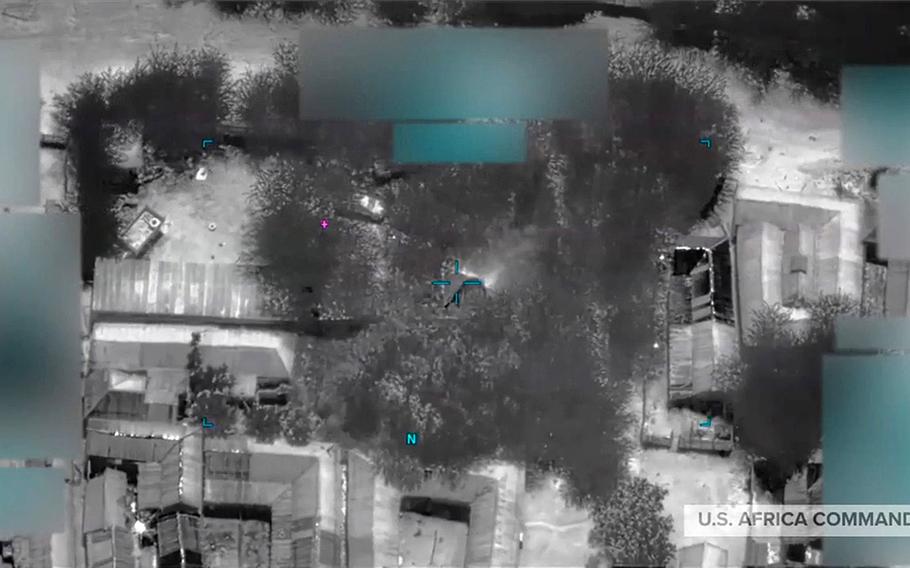
A screenshot from a video released by U.S. Africa Command showing the impact of the airstrikes conducted Dec. 10, 2020, that killed eight al-Shabab bomb makers in the vicinity of Jilib, Somalia. ( U.S. Africa Command )
STUTTGART, Germany — U.S. airstrikes killed eight al-Shabab bomb makers this week in Somalia, marking the first such attack in the country since the Pentagon directed the military to withdraw its forces from the country by early next year.
On Friday, U.S. Africa Command posted a video of the strike, which hit an area where a known expert bomb maker resided, the command said. The attack, which occurred in the vicinity of Jilib in southern Somalia, shows a billow of smoke after an initial blast.
“Al-Shabaab’s continuous attacks demonstrate its willingness to accept high numbers of civilian casualties while advancing operations aimed at undermining security across Somalia,” Lt. Gen. Kirk Smith, AFRICOM deputy commander, said in a statement.
AFRICOM said the terrorists killed were known to play important roles in producing explosives for al-Shabab, including car bombs.
On Dec. 4, the Pentagon announced that it would pull its 700 troops out of Somalia in a move expected to be completed before President-elect Joe Biden takes office on Jan. 20. The plan is to reposition those forces in other parts of eastern Africa.
AFRICOM, however, has said the departure of a ground force in Somalia doesn’t mean an end to operations in the country or their efforts aimed at supporting Somalia’s military.
For years, al-Shabab, an al-Qaida-aligned group, has been seeking to overthrow the U.S.-backed government of the country.
This year, AFRICOM conducted about 50 airstrikes in Somalia. Even without troops on the ground, a U.S. drone site in neighboring Djibouti is capable of launching attacks.
Maj. Gen. Dagvin Anderson , who leads Special Operations Command Africa, said the latest strike showcases the ability of the U.S. to “defend both ourselves and our partners.”
“We will continue to maintain strong force protection and strike those who seek to harm us or our partners,” he said.
vandiver.john@stripes.com Twitter: @john_vandiver